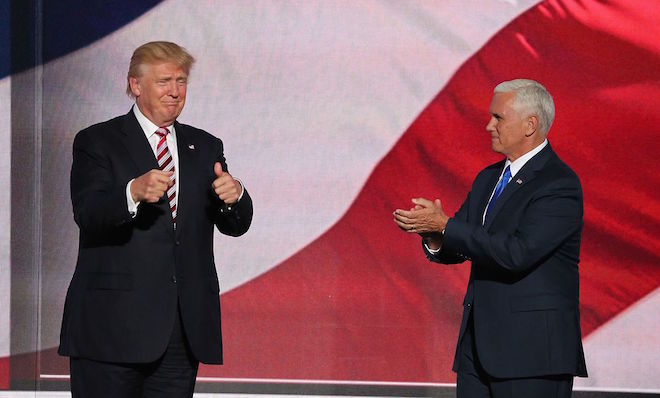Accountability: Why the Press Needs to Ask ALL 538 Electors about Donald Trump

A century from now, historians may well turn to the Trump Time Capsule series.
The Atlantic’s James Fallows has told “what we knew, when we knew it, about the man who was trying to become president.” The series holds Republican politicians and others accountable to future generations. Donald Trump’s detractors regard him as a potential tyrant with little regard for the First Amendment, climate change measures, diversity, women’s rights and countless other concerns—hence, the close scrutiny by The Atlantic and others.
But the job isn’t done. The Atlantic, the Washington Post, the New York Times, NPR and other major news organizations should to talk to every member of the Electoral College before the vote on December 19.
The names of the 538 electors are not secret. They’re even in Wikipedia, and through state Web sites and otherwise, reporters should be able to catch up with their physical and email addresses and phone numbers. Let’s try to get all the electors on record as to how they feel about Trump and gather the individual answers in one place.
Perhaps this could be a joint project of several or even many news organizations, so we see all the answers as soon as possible. A clonable online database, in the public domain to make preservation easier and help protect the results from possible future censorship, would contain all the details. Ideally the interviews can be in audio, and if at least some are in video, then so much the better. Should the electors not talk, their name and reasons for declining (if given) should be mentioned.
Interviewing electors of both parties, the reporters should not lobby for or against Trump. But if nothing else in the interest of history, they should ask these questions or at least similar ones:
- Are you planning to vote for Trump? (No Democratic elector will say yes, but read on---see question 10.)
- If so, why? Is it because you presently believe that the system requires you to? Please list all the pro-Trump reasons, legal and otherwise. If you’re voting for him not just because of election results but also because you sincerely think his presidency would be good for the United States, then mention the specifics. If dislike of Hillary Clinton is one reason for your vote, say so and elaborate.
- Will you still vote for Trump even if he does not pledge to relinquish control of his assets and either sell them or place them in the control of independent trustees empowered in every way to eliminate conflicts of interests?
- Is it a conflict when Trump holds overseas properties or has his name otherwise associated with them? What to do about such situations as those in Turkey ("a little conflict of interest," as he himself has described it), India, the Philippines, and Argentina, where he and local partners rely on the goodwill of the local governments? And if his companies receive favors, will this violate the language in the Constitution prohibiting emoluments from foreign powers? Might Trump’s dealing with state-owned companies---or companies whose owners have close ties to the ruling politicians---be the same as actual dealings with these foreign states? Even or especially with members of his family running his businesses?
- Are there reasons other than the Constitutional ban on emoluments why you might not want to vote for Trump, such as his plea for less press freedom, the end result of “opening up” the libel laws? Dictators such as Vladimir Putin and their allies have used criminal and civil libel laws to stymie reporters investigating corruption, the reason why this question is germane.
- Does the First Amendment provide enough press protection, not enough or too much?
- If you’re from a state that requires electors to go by the election results, would you be open to the possibility of campaign donors or others paying your fine and legal expenses? Even if you’re in South Carolina, where faithless electors face possible criminal penalties, would you be willing to undergo the legal risks?
- Would the fact that Trump lost the popular vote on November 8 be at all a factor in making your choice?
- Should we abolish the Electoral College? Why or why not?
- Under any circumstances would you be open to a compromise under which Democratic electors agreed to vote for Vice President-elect Mike Pence in return for Republicans promising not to vote for Trump? Most Democrats would hate most of Pence’s policies, but significantly, he has supported a federal shield law to protect professional journalist from having to reveal anonymous sources in most cases. Although, as governor of Indiana, he called for a state news agency, he dropped this second proposal. Would the Pence approach possibly be tidier than throwing this into the House of Representatives without some kind of compromise beforehand? If not, why not? If so, why? Needless to say, Democrats would still be free to oppose Pence's policies on issues ranging from abortion to taxes.
The last question, of course, is one reason why the interviews should not be confined to Republican electors alone.
